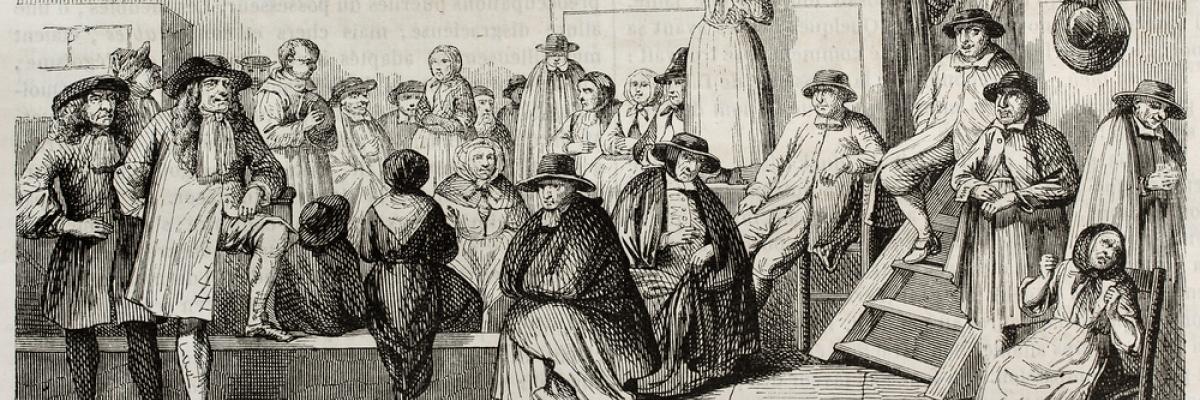
History
When the ‘official’ translation of the Bible into English for the Church of England – the King James Bible – was published in the 17th century and became available to a much wider audience, people realised that the practices of the established church were not what was in the Bible. It does not say anything about churches, cathedrals, clergy, popes, consecrated ground, fixed forms of service, hymns, etc.
One of those people was George Fox who travelled around England pointing out that Jesus said “when two or three are gathered together there am I” (Matthew 18:20).
Supported by a friend Margaret Fell they formed the Religious Society of Friends of the Truth – later shortened to the Religious Society of Friends and subsequently given the nickname Quakers.
Quakers effectively did away with the whole structure of the conventional churches and went back to that basic belief. We all have something within us, which many call God, that we can access and share with others.
Religious turmoil in 17th century England resulted in large numbers of Quakers ending up in prison and also many emigrated to America. Pennsylvania was founded by Quakers.
We are not connected with the Puritans or the Amish – a common assumption by people who don’t know us.
Many of the earliest British settlers in Australia (including convicts) were Quakers. In 1832 two prominent English Quakers, James Backhouse and George Washington Walker, came to Australia with the support of their local congregations.
Although their main concerns were the treatment of the convicts and of the Aborigines, they also travelled around Australia contacting as many Quakers as they could. This resulted in the formation of a formal Quaker group in Hobart, where they were mainly based, and later, groups in other States.
Quaker congregations are called Meetings and, confusingly, the word can refer to the act of meeting together (for worship or business) as well as the organisation. We have seven Regional Meetings in Australia – which conduct business, normally monthly, in relation to their area, and Australia Yearly Meeting, which meets for business for the whole of Australia once a year.
For many years Quakers were associated with their home Meetings in England and it was not until 1964 that Australian Quakers became independent of Britain and formed their own Australia Yearly Meeting.
There are about 2,000 Quakers in Australia, about half of whom are Members and the other half regularly attend our meetings. There are many others who come occasionally, and we welcome them all.
There is more information about our history here and information about the Quaker witness to peace and non-volence during WWI here. We also have biographical information about over 1,500 Australian Quakers who have died which could be useful for family history research.

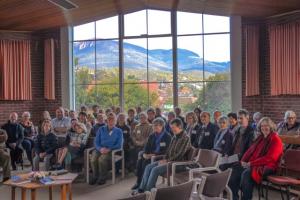
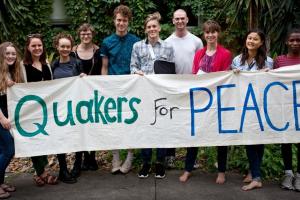
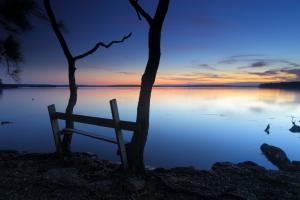
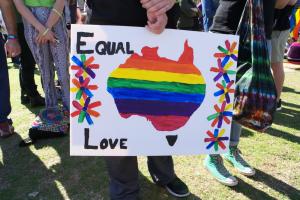
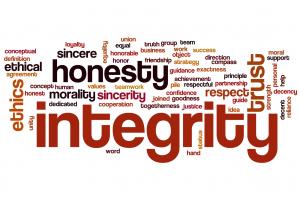
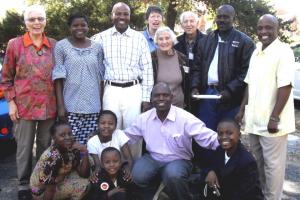
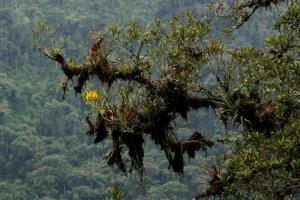
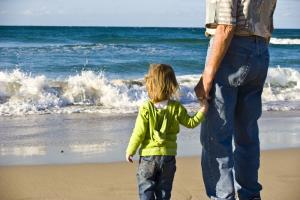
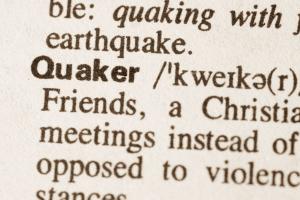
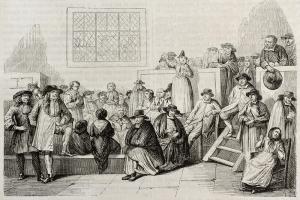
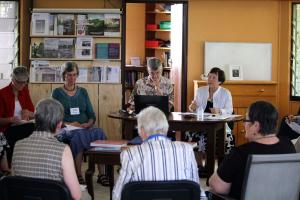
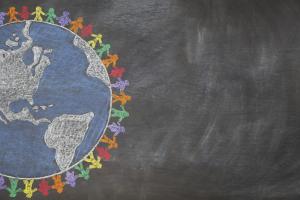
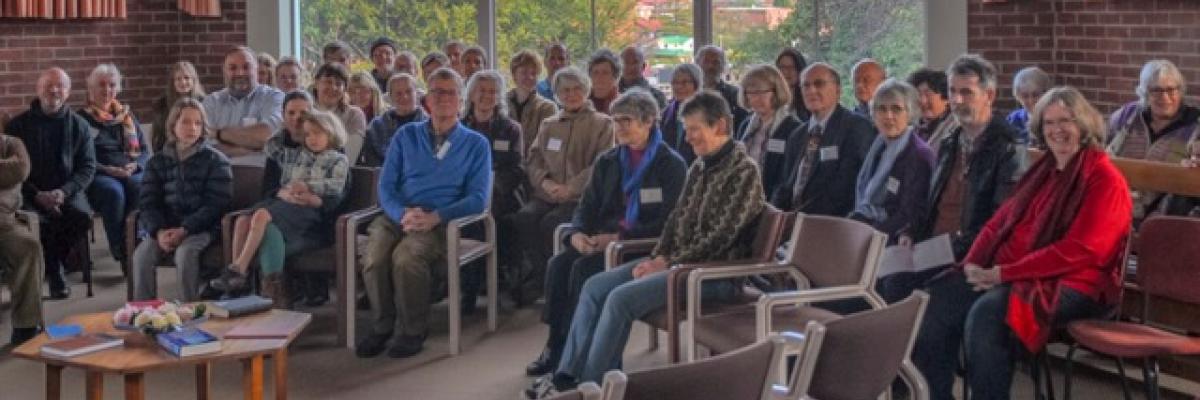
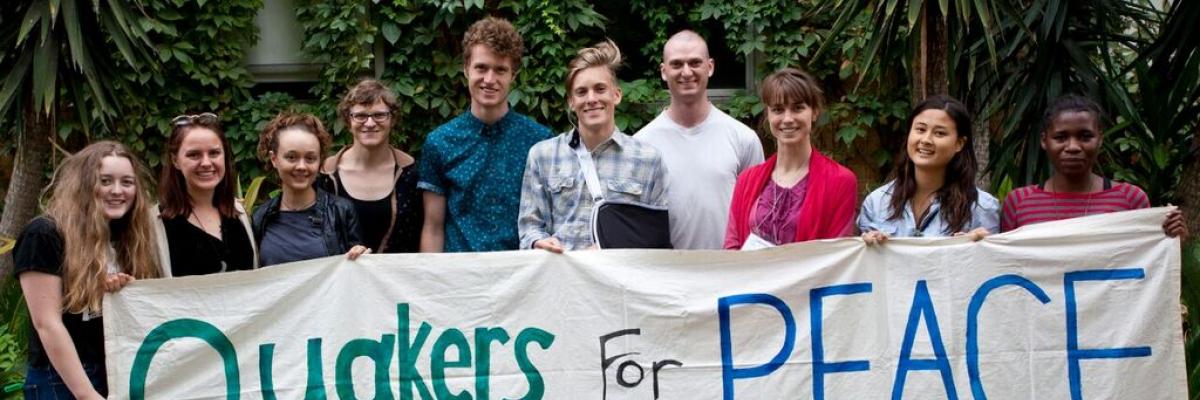
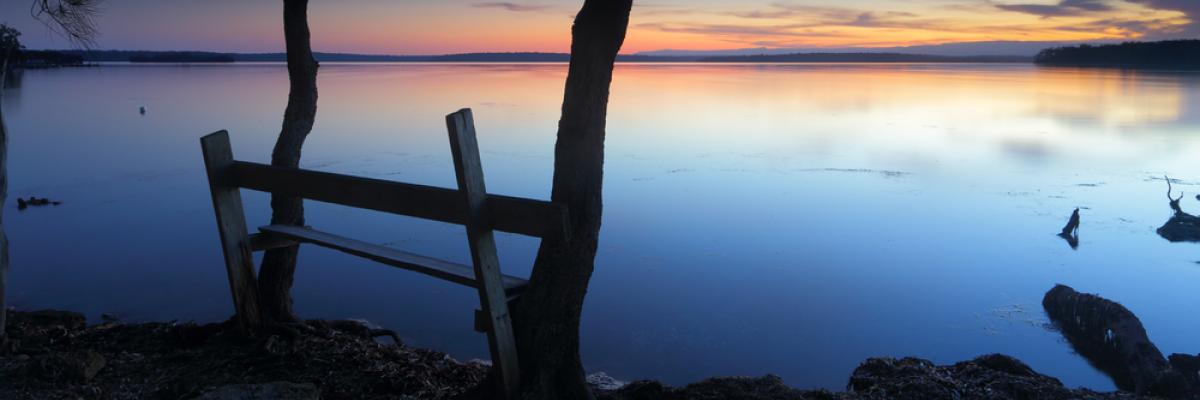
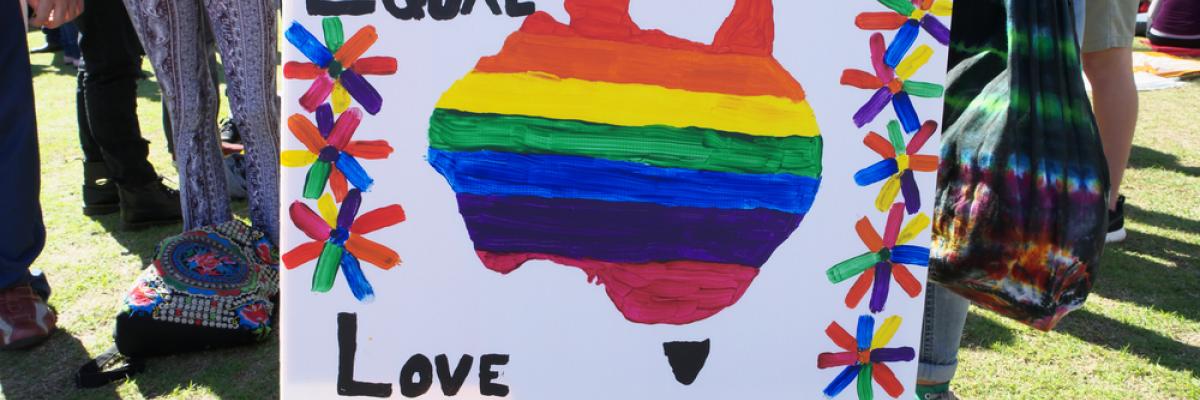
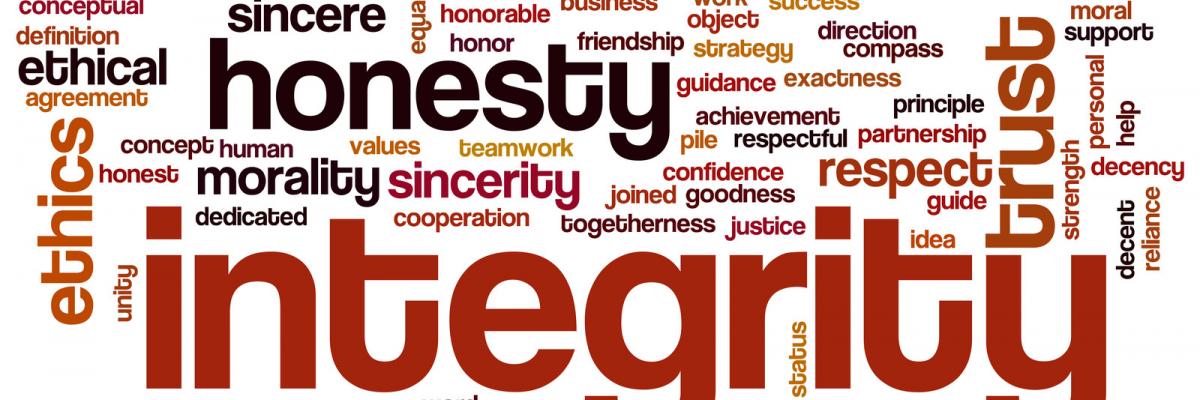
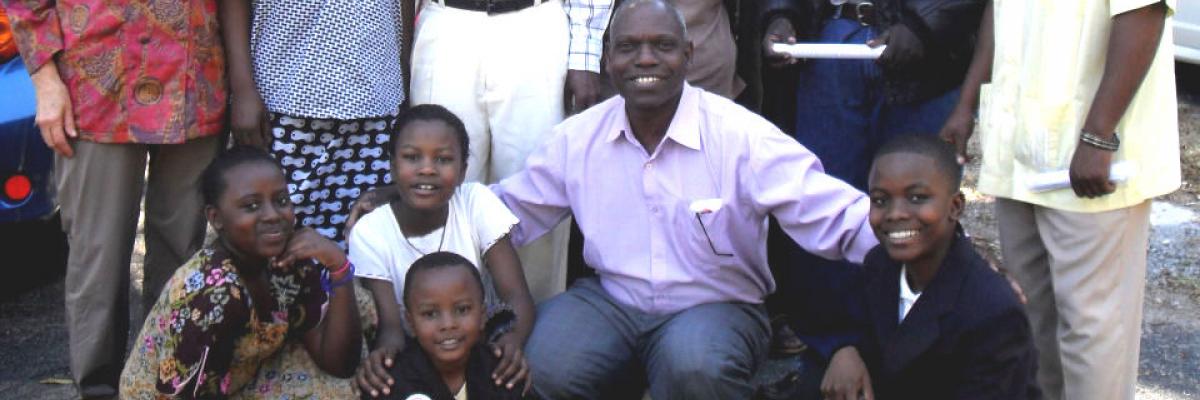
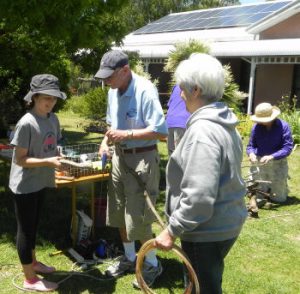 When a Quaker community is working well, it encourages trust and creates spaces for dialogue and cooperation. The community provides a place for people to develop their strengths, vision, wisdom and creativity through acceptance and support.
When a Quaker community is working well, it encourages trust and creates spaces for dialogue and cooperation. The community provides a place for people to develop their strengths, vision, wisdom and creativity through acceptance and support.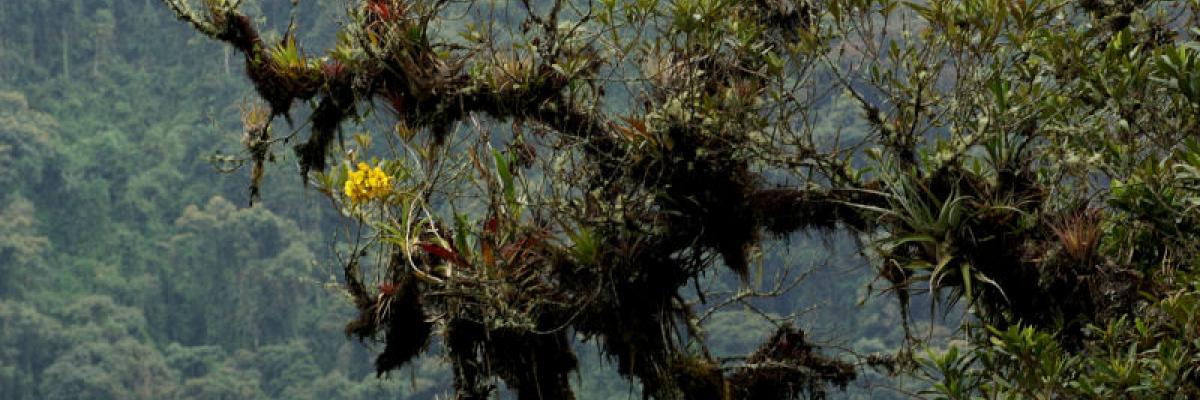
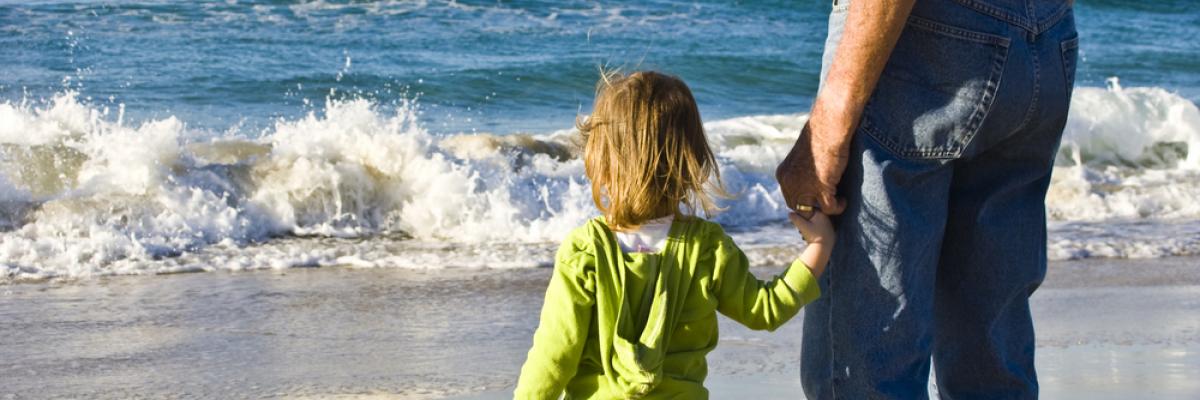
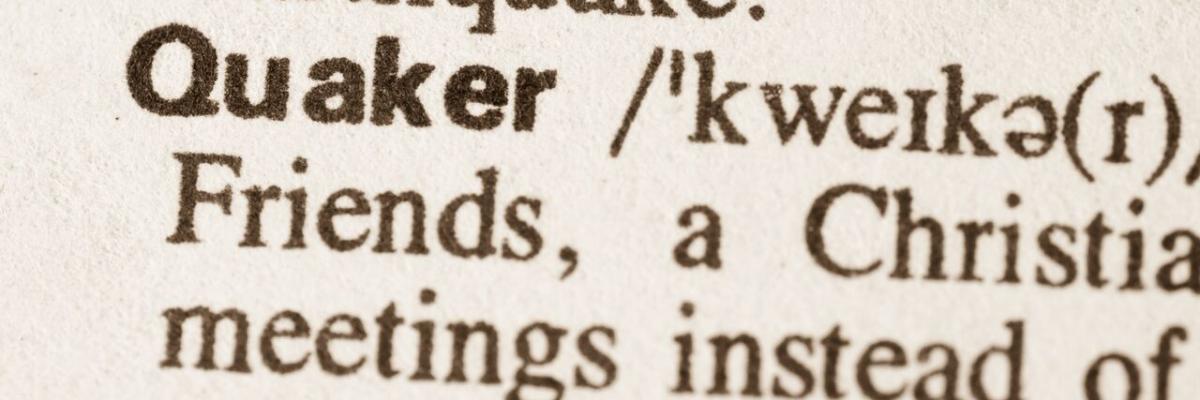

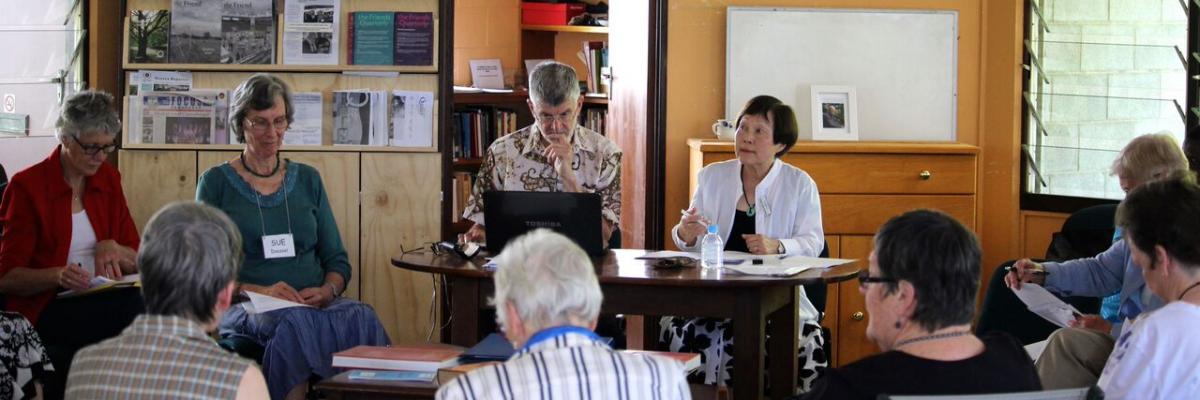
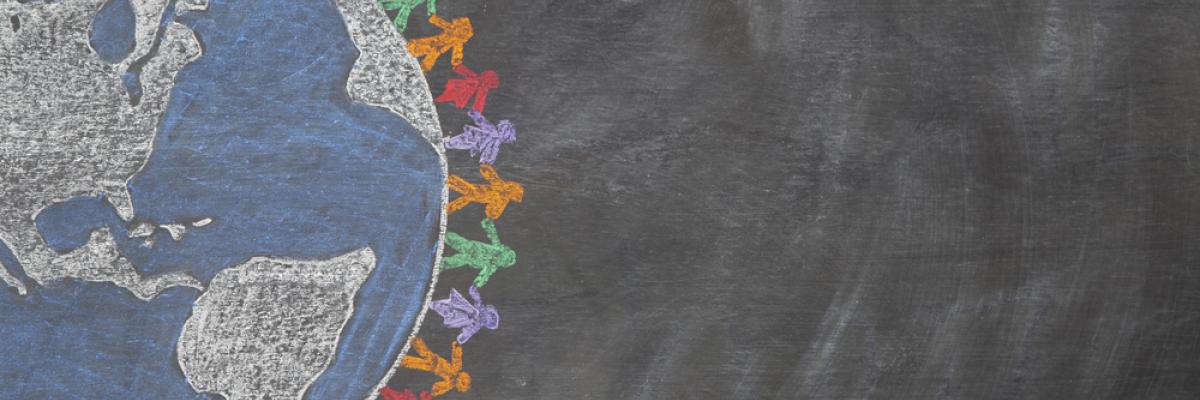
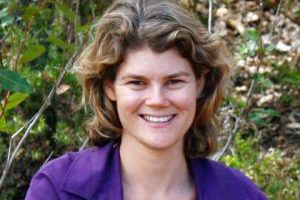
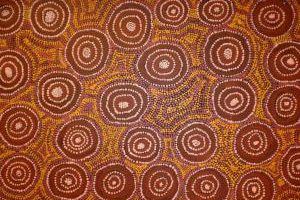
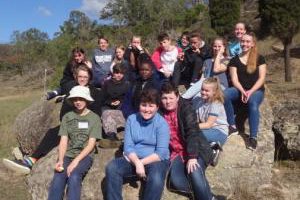
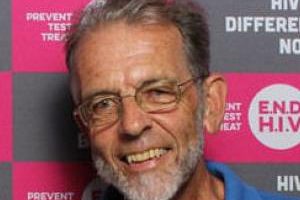
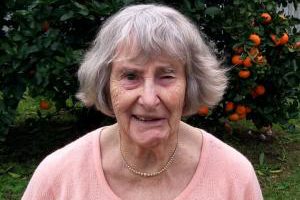
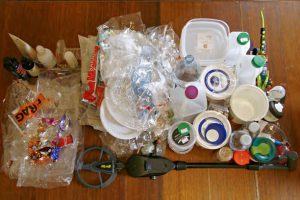 ONE MONTH PRIOR:
ONE MONTH PRIOR: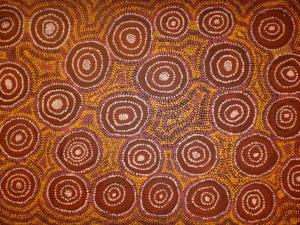 David Carline
David Carline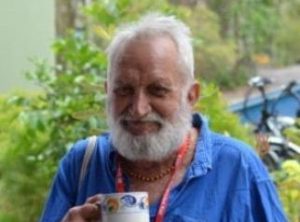 I came here to Cunnamulla with a leading to work with my own people, the Kooma/Gwamu. The old Aunties in Brisbane paved the way by connecting me with my own Kooma people. I am still under this leading. I ended up having a little school. I bought some shops that provided the building, and there was money from the National Numeracy and Literacy Programs, and our program was aimed at kids who were expelled or suspended for being disruptive. The regular schools often wouldn’t bother to find out why the children were having trouble. One boy was in the room when his father committed suicide, so he was very disruptive.
I came here to Cunnamulla with a leading to work with my own people, the Kooma/Gwamu. The old Aunties in Brisbane paved the way by connecting me with my own Kooma people. I am still under this leading. I ended up having a little school. I bought some shops that provided the building, and there was money from the National Numeracy and Literacy Programs, and our program was aimed at kids who were expelled or suspended for being disruptive. The regular schools often wouldn’t bother to find out why the children were having trouble. One boy was in the room when his father committed suicide, so he was very disruptive.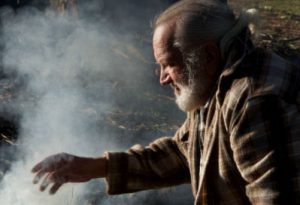 I am a Recognised Elder and was acknowledged by the community as NADOC male Elder of the Year for Cunnamulla. We haven’t got any towns in the Kooma/Gwamu lands. We got our native title for some of our land last year; this is something I’ve been working on, with others, for 20 years. That was a great moment.
I am a Recognised Elder and was acknowledged by the community as NADOC male Elder of the Year for Cunnamulla. We haven’t got any towns in the Kooma/Gwamu lands. We got our native title for some of our land last year; this is something I’ve been working on, with others, for 20 years. That was a great moment.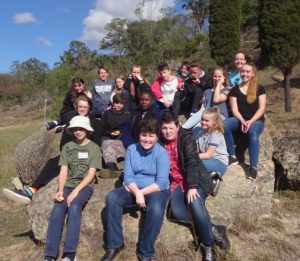 We are:
We are: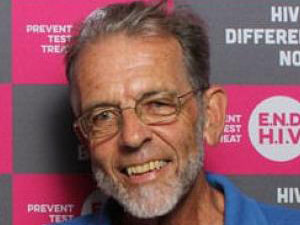 I came to Quakers by marrying one (and she came to Quakers by answering an advert in the personal column of The Times of London). I had a largely agnostic upbringing and my contact with religion – through school assemblies, scouting, etc. – had left me distinctly unimpressed.
I came to Quakers by marrying one (and she came to Quakers by answering an advert in the personal column of The Times of London). I had a largely agnostic upbringing and my contact with religion – through school assemblies, scouting, etc. – had left me distinctly unimpressed.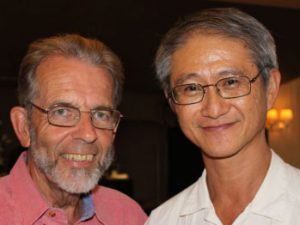 No doubt it was no surprise to Quakers who knew me that I developed a gay relationship of my own that has now lasted over 25 years. I am sure my Quaker Meeting would be happy to arrange a marriage for Gary and me, but it is not something that either of us wants. To me, the Commonwealth Marriage Act is irrelevant and the support of all the Quakers I meet is sufficient recognition of us as a couple.
No doubt it was no surprise to Quakers who knew me that I developed a gay relationship of my own that has now lasted over 25 years. I am sure my Quaker Meeting would be happy to arrange a marriage for Gary and me, but it is not something that either of us wants. To me, the Commonwealth Marriage Act is irrelevant and the support of all the Quakers I meet is sufficient recognition of us as a couple.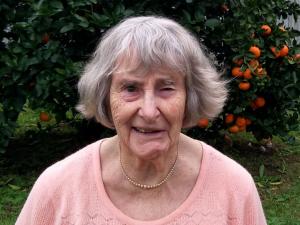 My parents were missionaries in China, so I was brought up going to church. When I was in my late teens, my mother, my sister and I went to live in Edinburgh – my father had died a few months earlier. For the next nine years or so we attended a church called St George’s West, which had a reputation for ministers who preached a good sermon. The minister at that time was called Murdo Ewan McDonald, and he was not just a good preacher, he was brilliant. They had sermons for the children before they went out to Sunday School, and his were always funny but with a serious point to them. The sermons for the adults were serious but practical, and he always made it clear to us that our faith had to guide our lives. We were not to be what we called ‘Hatch, match and dispatch church goers’ those who were christened, married and had a funeral service.
My parents were missionaries in China, so I was brought up going to church. When I was in my late teens, my mother, my sister and I went to live in Edinburgh – my father had died a few months earlier. For the next nine years or so we attended a church called St George’s West, which had a reputation for ministers who preached a good sermon. The minister at that time was called Murdo Ewan McDonald, and he was not just a good preacher, he was brilliant. They had sermons for the children before they went out to Sunday School, and his were always funny but with a serious point to them. The sermons for the adults were serious but practical, and he always made it clear to us that our faith had to guide our lives. We were not to be what we called ‘Hatch, match and dispatch church goers’ those who were christened, married and had a funeral service.